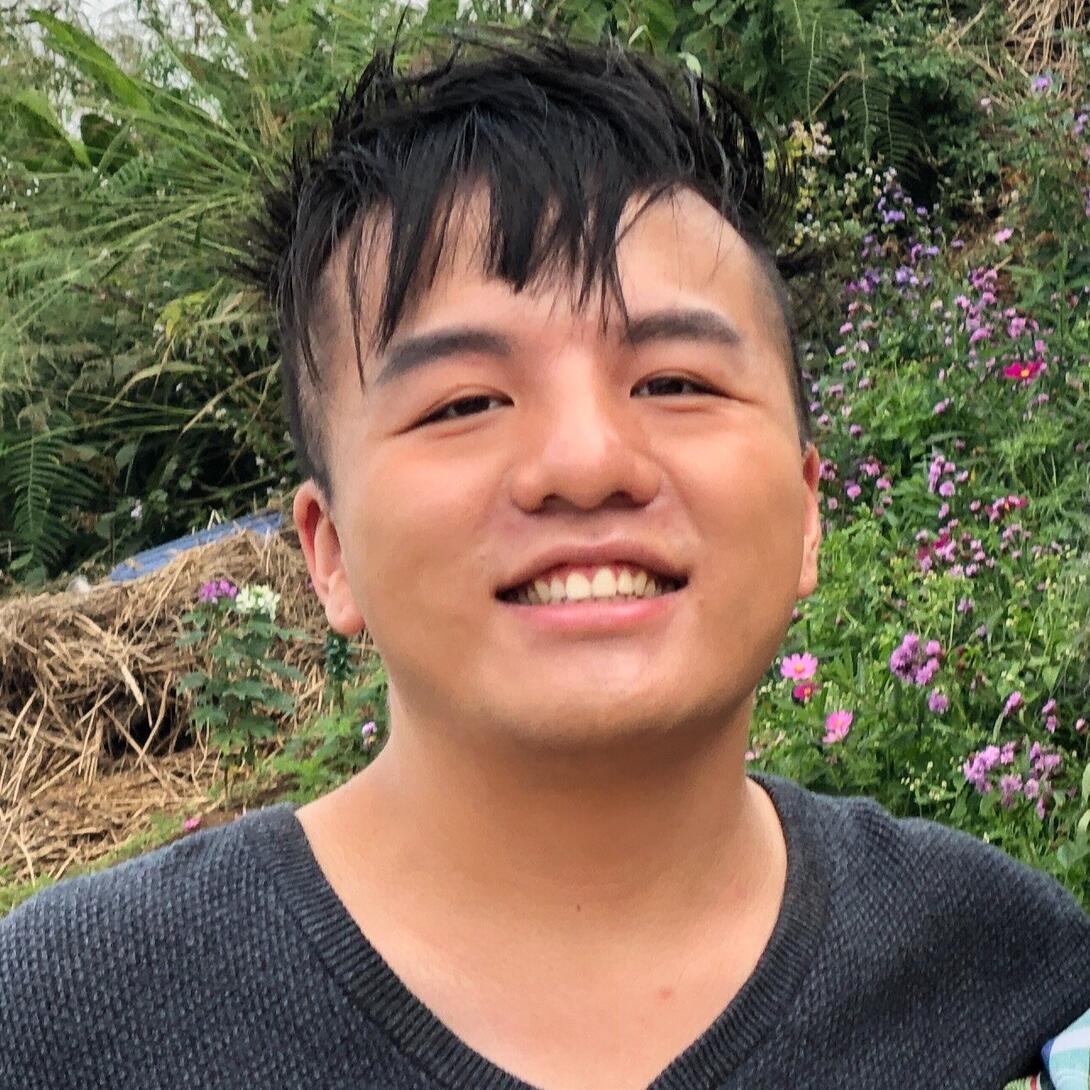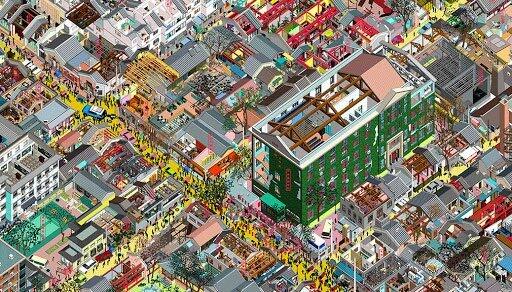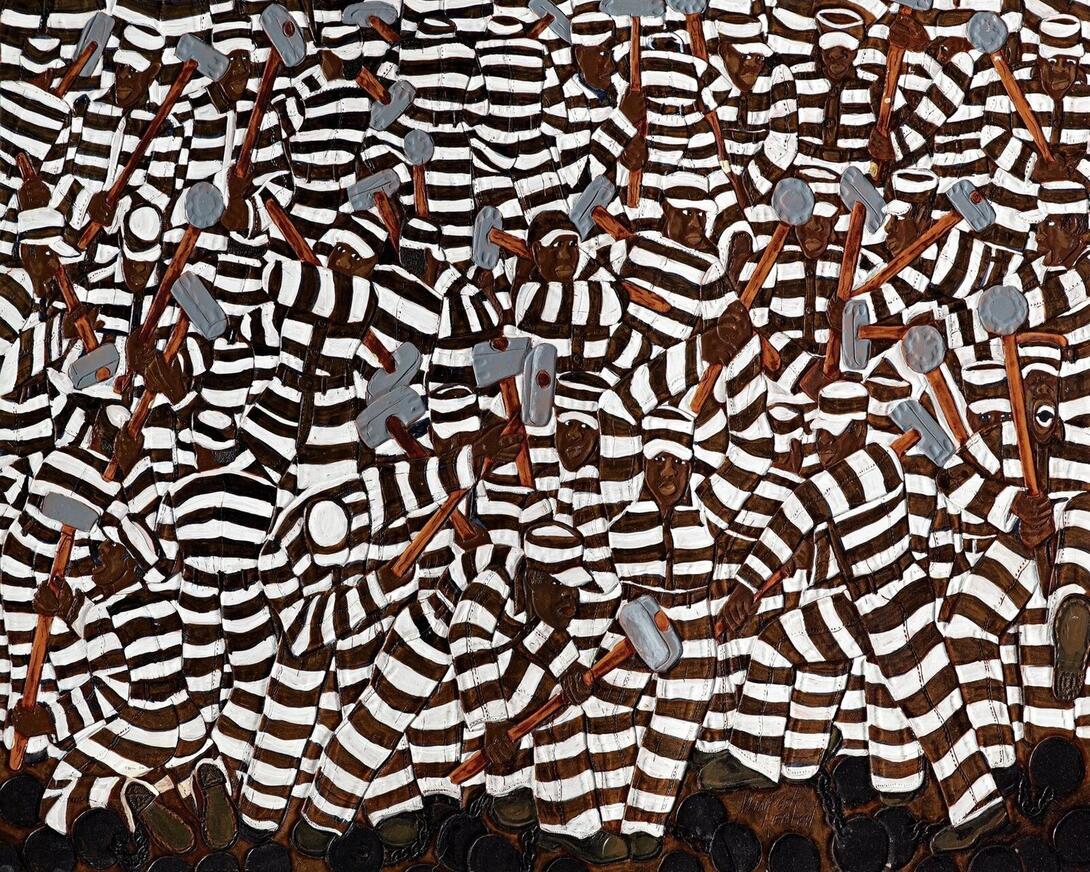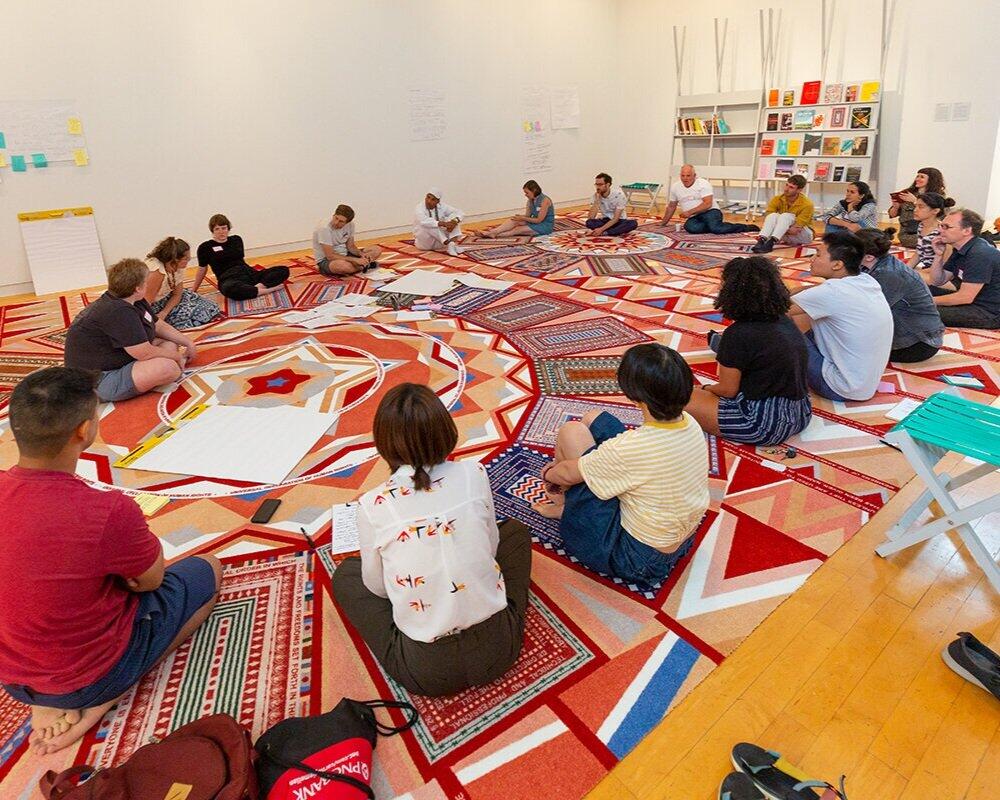Espan: Spotlight Visiting Faculty 2021-22
Visiting Faculty 2021-22
Storytelling through Architecture

Tommy CheeMou Yang, recipient of the 2021-22 Ann Kalla Professorship in Architecture, is a Hmong designer and researcher who explores insurgent urban and architectural growth through fieldwork, oral storytelling, and cartography. His family came to America as refugees of the Vietnam War. Home and belonging, for as long as he can remember, is his grandmother’s stories of dragons and mountains, rivers and valleys – where the land always shifts and the only constant is the sky that connects these memories from a faraway land.

Yang’s “Urban Traces” studio weaves history, ethnography, storytelling, and the delayering of the built environment through fieldwork to examine and counter-map the representation of the city.
Tommy believes that architects today can tell the lost fleeting stories of architecture and urbanism of the twentieth century – transient forms of placemaking, temporary occupation of buildings, or re-appropriation of building structures – by fusing architectural tools, ecological science, and ethnographic oral storytelling. His fall seminar “Urban Traces: Insurgent Rituals and Countermapping the City” applies these methods to build a digital, ethnographic archive of communities in Pittsburgh. The stories collected this semester will inform what sites of architecture and activism his spring studio will explore through cinematography, animation, mapping, and design – building an argument for an architecture for and of the people.
Tommy’s recent works include a collaborative exploration in Memory, Trauma, and Home which was recently supported by the National Endowment for the Humanities and an array of community engaged scholarship ranging from Wisconsin, New York, Thailand, and Taiwan tracing how local embodied practices cascade into large urban transformations.
Listen to excerpts from the conversation between Tommy Yang and Carolyn Ristau:
Teaching Other Ways of Seeing
When

, recipient of the 2021-22 Joseph F. Thomas Visiting Professorship, started his architecture degree in 1989, he didn’t know or see any Black architects or faculty. Not seeing himself, he left school. Twenty years later when he returned to finish his degree, there were still no Black faculty and no Black representation in history or theory. This inspired Jackie to create space in architecture institutions for Black and “othered” voices. He challenges institutions to allow agency for those who are marginalized and to reject assimilation into a white Eurocentric canon that purposely renders “othered” humans invisible.

McFarland’s seminar “Afrofuturism and the Speculative” explores how Afrofuturism allows one to sift perspectives out of a Eurocentric, white, patriarchal, heteronormative perspective to give agency to those who see and experience the world through different eyes.
During his MFA, Jackie was introduced to Afrofuturism, where he discovered a way of seeing the world more holistically outside of the linear western canon. His fall seminar “Afrofuturism and the Speculative: New Tools for a New World” introduces students to other ways of critically looking at the world such as the repurposing of technology, African mysticism, and science fiction literature. He believes that as decision-makers, architects need to pull from multiple viewpoints to facilitate better and more inclusive decisions.
Jackie seeks to start and normalize the conversation of allowing otherness to exist in architectural schools and beyond. His current printmaking project “Manual for the Modern Uncle Tom” is a conversation for a Black audience. It asks the question: how much of ourselves must we (or be willing to) give up to exist in the spaces not meant for us?
Listen to excerpts from the conversation between Jackie McFarland and Carolyn Ristau:
Learn more about how our 2021 studios are tackling issues of social justice:

This fall 2021 ASO studio explores an opportunity to re-purpose harmful architecture of the past for a healthier future at the abandoned Pennsylvania Correctional Institution of Pittsburgh.

In this fall 2021 Commoning the City studio, students are researching how commoning might transform a neighborhood community as they develop thesis proposals.

This spring 2021 ASO studio imagined if the physical, social, and cultural fabric of the Hill District remained intact and thriving, partaking fully in the Pittsburgh Renaissance.

Alumni News & Updates
To have your alumni news featured, please email Kristen Frambes at kframbes@andrew.cmu.edu with a brief description and link to more information.
Anthony Kosec, Associate AIA (M.Arch ‘19) received a Young Architects Studio Competition Award as part of the 2021 AIA Pittsburgh Design Awards. His project, “The Step,” reimagines an existing structure and key intersection in East Liberty as a community hub for all who call the area home, both longtime residents and new.
Emily Melillo (B.Arch ‘19) received a 2021 Women Builders Council award. Emily was recognized along with her fellow “Outstanding Women” and “Next Generation” awardees for breaking new ground every day and providing inspiration and advocacy for a more diverse, equitable and inclusive workforce.
Shalini Vajjhala (B.Arch ‘01, CIT ‘01, CIT ‘05) executive director of the San Diego Regional Policy & Innovation Center, a newly created subsidiary of the San Diego Foundation, will partner with the Brookings Institution to tackle some of the region’s toughest challenges, including housing affordability, infrastructure improvements, climate resilience, and the creation of stable, high-paying jobs.